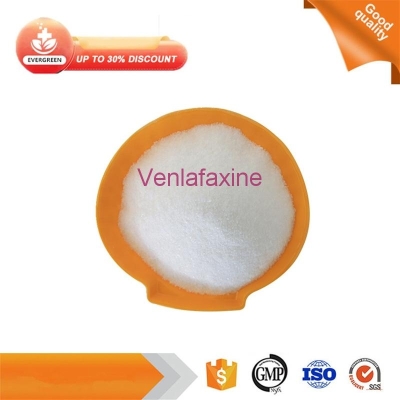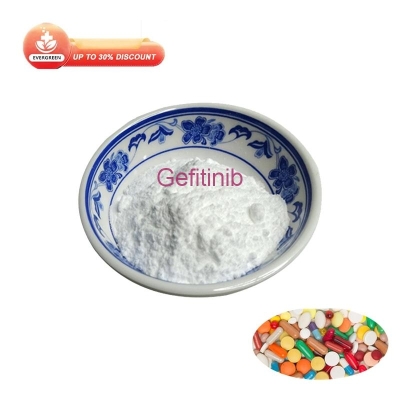How do genetic factors guide CLL treatment decisions in the age of targeted therapy?
-
Last Update: 2020-07-18
-
Source: Internet
-
Author: User
Search more information of high quality chemicals, good prices and reliable suppliers, visit
www.echemi.com
At present, the treatment of CLL has entered a new era. The biological information of CLL found in various studies has led to changes in treatment, which has completely changed the status quo of CLL treatment.immunochemotherapy has always been the main treatment for CLL, and has been gradually replaced by non chemotherapy regimen in recent years.although immunochemotherapy is effective in some CLL patients, it is not effective in patients with del (17p) or del (11q), TP53, ATM, sf3b1, Notch1 mutation, and IGHV non mutation.small molecule inhibitors (such as ibutilib) and anti apoptotic protein Bcl-2 inhibitors (e.g., venetoclax) targeting B cell receptor signaling pathway showed a much better remission rate than immunochemotherapy in these patients, and the toxicity was relatively small.however, it is not clear whether CLL patients in all genetic subgroups can obtain long-term sustained remission, and whether genetic stratification is still important in the treatment of CLL in the new era.cll14 test confirmed that anti-CD20 monoclonal antibody (obinutuzumab) combined with Bcl-2 inhibitor venetoclax (Veng) is a new standard therapy for elderly patients with CLL complications.Tausch and his team evaluated the IGHV mutation status, common genomic abnormalities, and gene mutations in 421 untreated patients in the cll14 trial (nct02242942), and compared the efficacy of altuzumab + nitrogen mustard benzoate (gclb) with Veng, which was recently published in the journal blood.key points Veng is superior to gclb in most genetic subgroups, but del (17p) and TP53 mutations are still poor prognostic indicators.no IGHV mutation was a predictor of benefit from Veng therapy.Veng regimen provides a new treatment option for CLL patients.cll14 trial confirmed that the scheme can achieve continuous remission regardless of the status of IGHV mutation, so it can overcome the non mutated status of IGHV as an indicator of poor prognosis. In multivariate analysis, del (17p), del (11q), IGHV non mutation and TP53, birc3, sf3b1 mutations were identified as independent prognostic factors of PFS in gclb regimen, while only del (17p) was important for Veng.unlike immunochemotherapy, patients with poor genetic markers benefit most from Veng, especially those with IGHV mutations.regardless of IGHV mutation status, patients with del (11q), ATM, sf3b1, birc3, Notch1 mutations, Veng regimen can achieve sustained remission (as shown in the figure below). However, patients with sf3b1 mutation showed a trend of poor progression free survival.Tausch and his team also found that remission rates and MRD negative rates were higher in CLL patients with del (17p) and TP53 mutations, but the disease remission in these patients was not lasting.in the Murano study, venetoclax combined with rituximab and B cell receptor signaling pathway inhibitors also had a shorter progression free survival in patients with TP53 mutant CLL.p53 protein mediates apoptosis in response to DNA damage agents, but the absence of p53 dependent apoptosis cannot explain the limited anti CLL effect of targeted therapy.one possible explanation is that p53 plays a key role in DNA damage during DNA replication, resulting in the instability of CLL cells with TP53 mutation. in fact, patients treated with venetoclax or ibutinib usually develop clonal evolution and genomic complexity before disease progression. currently, venetoclax based therapies are still relatively expensive. The greatest clinical significance of this study is to help doctors determine treatment options based on genetic factors of CLL patients. for IGHV mutation, CLL patients without other genetic abnormalities except del (13q) can continue to use immunochemotherapy without tolerance problems. but for CLL patients without IGHV mutation and del (11q), ATM, notch, sf3b1, birc3 mutations, Veng regimen can bring more benefits than immunochemotherapy. in addition, patients with del (17p) and TP53 mutations can also benefit from Veng treatment compared with immunochemotherapy, but ideally, these patients should be included in clinical trials exploring new therapies and treatment combinations. how to find the best treatment for patients with TP53 mutation CLL is still a difficult problem. it is not clear whether prolonging the duration of venetoclax treatment and deeper remission can prevent the recurrence of the disease; whether the combination of ibuprotinib and venetoclax can overcome the resistance to these two drugs is still unknown. it will be of great significance to explore the curative effect of car-t therapy and other immunotherapies, and to deeply understand the subcloning dynamics, drug resistance mechanism and survival pathway of TP53 mutant CLL. in the past decade, we have developed a very effective treatment for CLL cells. in order to ensure that the disease can be controlled and even cured in a long time, future research needs to consider the therapeutic weakness of drug-resistant CLL subclones. the emergence of targeted therapy did not reduce the importance of genetic factors in CLL. Tausch and his team confirmed that genetic factors still affect the efficacy of CLL, providing important guidance for the future related research of CLL. yimaitong was compiled from: 1. Eugen Tausch, Christof Schneider, Sandra robrecht, et al. Predictive and predictive impact of genetic markers in patients with CLL treated with oblituzumab and venetoclax. Blood (2020) 135 (26): 2402 – 2412.2. Tatjana Stankovic, Marwan Kwok. Genetics in the era of targeted CLL therapy. Blood (2020) 135 (26): 2333 – 2334
This article is an English version of an article which is originally in the Chinese language on echemi.com and is provided for information purposes only.
This website makes no representation or warranty of any kind, either expressed or implied, as to the accuracy, completeness ownership or reliability of
the article or any translations thereof. If you have any concerns or complaints relating to the article, please send an email, providing a detailed
description of the concern or complaint, to
service@echemi.com. A staff member will contact you within 5 working days. Once verified, infringing content
will be removed immediately.







